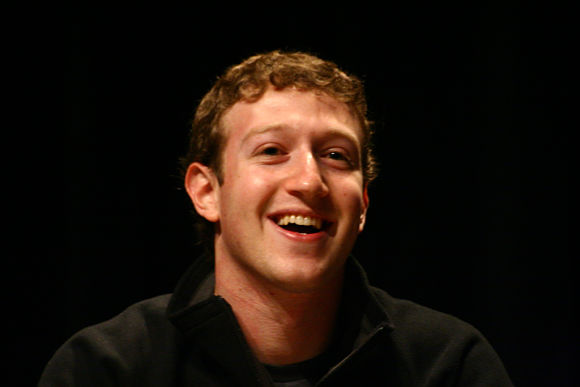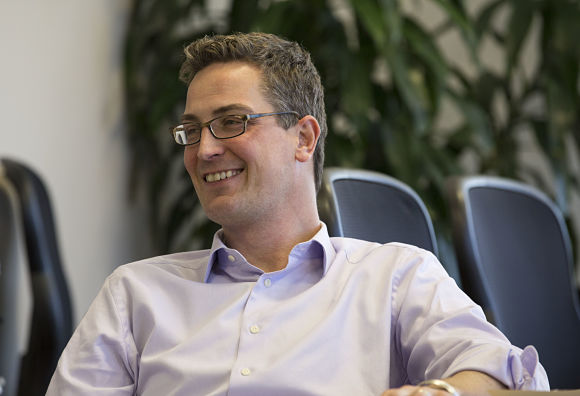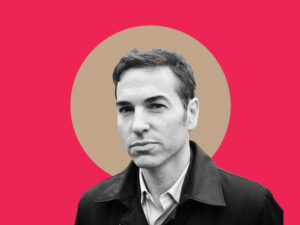Giving more money to altruistic initiatives should make those programs stronger, right? Not necessarily. Even some of the most well-known, well-intentioned programs have fallen short of their promises, especially ones funded on hunches instead of data.
Take the anti-drug program D.A.R.E. and the anti-incarceration program Scared Straight.
“(Both) received lots and lots of funding without clarity about whether they work,” says our guest Phil Buchanan, President of the Center for Effective Philanthropy.
“There was an assumption that if you educated kids about drugs in a certain way, they’d be less likely to use them,” he says of D.A.R.E.. And with Scared Straight, there was a belief that if you brought at-risk youth to visit prison inmates, you would help them avoid lives of crime. “In fact, it had the opposite of the intended effect,” Buchanan tells us. “Those programs were rigorously evaluated too late.”
Buchanan has spent the last decade working with some of the nation’s leading foundations, conducting in-depth research and analysis. More recently, he has watched with interest – and some trepidation – as business leaders have begun to step into the philanthropic fray.

Buchanan points to Facebook founder Mark Zuckerberg’s celebrated $100 million donation in 2010 to improve Newark, New Jersey’s failing schools. Five years on, “There’s real questions about the effectiveness of that effort,” Buchanan says.
“Folks sometimes forget that philanthropy is addressing the very problems that have defied market solutions or in some cases are the result of market failure. And it’s hard work, it’s difficult work; these are the toughest problems that foundations and other donors and non-profits are seeking to address,” Buchanan says.
But those challenges are sometimes overlooked or underestimated by the start-up world, according to Buchanan.
He points to Reddit co-founder Alexis Ohanian’s column in Wired Magazine a few years ago, in which Ohanian concludes that the nonprofit model is broken. “The 20th-century way of guilting people into giving to an opaque, inefficient organization with massive overhead is no longer a viable model,” Ohanian wrote. Buchanan responded with Technology Start-Ups Don’t Hold All the Answers for ‘Broken’ Nonprofits, which appeared in The Chronicle of Philanthropy.
“There’s way too much ignorance about the sector,” Buchanan tells us. “Particularly given what an important role it has played in this country, and the fact that our nonprofit sector, with all its flaws and all its faults, and all the ways it could be better, is the envy of the world.”

But when well-intentioned projects fall short, Buchanan says transparency is key. “When something doesn’t work, we should be open about it, we should recognize that it’s going to happen, particularly if you’re taking on the big, audacious goals that foundations are uniquely well-positioned to take on.”
Sign up for our free newsletters
Subscribe to NPQ's newsletters to have our top stories delivered directly to your inbox.
By signing up, you agree to our privacy policy and terms of use, and to receive messages from NPQ and our partners.
Buchanan notes that new philanthropists tend to become effective philanthropists – they don’t necessarily start out that way. “What I wish we could see is a little bit more learning from the past and learning from each other,” he says. “There is sometimes an assumption that, ‘I’ve made a lot of money and I’m only 35’, in Silicon Valley or wherever. ‘I got results quickly, and it was hard, but here I am and I can do the same thing in philanthropy.’ And then you see how much harder it actually is, as everyone from Andrew Carnegie to Warren Buffett has observed, to really wisely give away resources – as Carnegie said – than to accumulate them.”
DISCLOSURE: Tiny Spark and The Center for Effective Philanthropy have both received grants from The William and Flora Hewlett Foundation.
ADDITIONAL RESOURCES
Phil Buchanan on Twitter
The Center for Effective Philanthropy
Buchanan’s favorite nonprofit blog: “Nonprofit with Balls” by Vu Lee.
SCARED STRAIGHT
The U.S. Justice Department’s Office of Juvenile Justice and Delinquency Prevention cites studies questioning the effectiveness of Scared Straight, which was established in the 1970’s. “Decades of research have shown that this approach is not only ineffective, but possibly harmful to youth.”
D.A.R.E.
The U.S. Government Accountability Office reviewed research on D.A.R.E. in 2003 and stated, “All of the evaluations suggested that D.A.R.E. had no statistically significant long-term effect on preventing youth illicit drug use.”
MARK ZUCKERBERG IN NEWARK
Forbes: “What Ever Happened To Mark Zuckerberg’s $100M Gift To Newark?” In this Forbes interview, Kimberly Baxter McLain, President and CEO of the Foundation for Newark’s Future, says, “We know that money alone cannot solve the education disparities in the city of Newark. We also know that our investments alone won’t completely transform a billion dollar school district overnight. It’s going to take the entire community of parents, teachers, local leaders, public officials, the philanthropic community and others working together to bring transformational change to Newark’s schools.”
The New Yorker: “Schooled.” This long article explains the effects of Zuckerberg’s $100M donation.
Business Insider: “Mark Zuckerberg Gave New Jersey $100 Million To Fix Newark’s Schools, And It Looks Like It Was A Waste”












